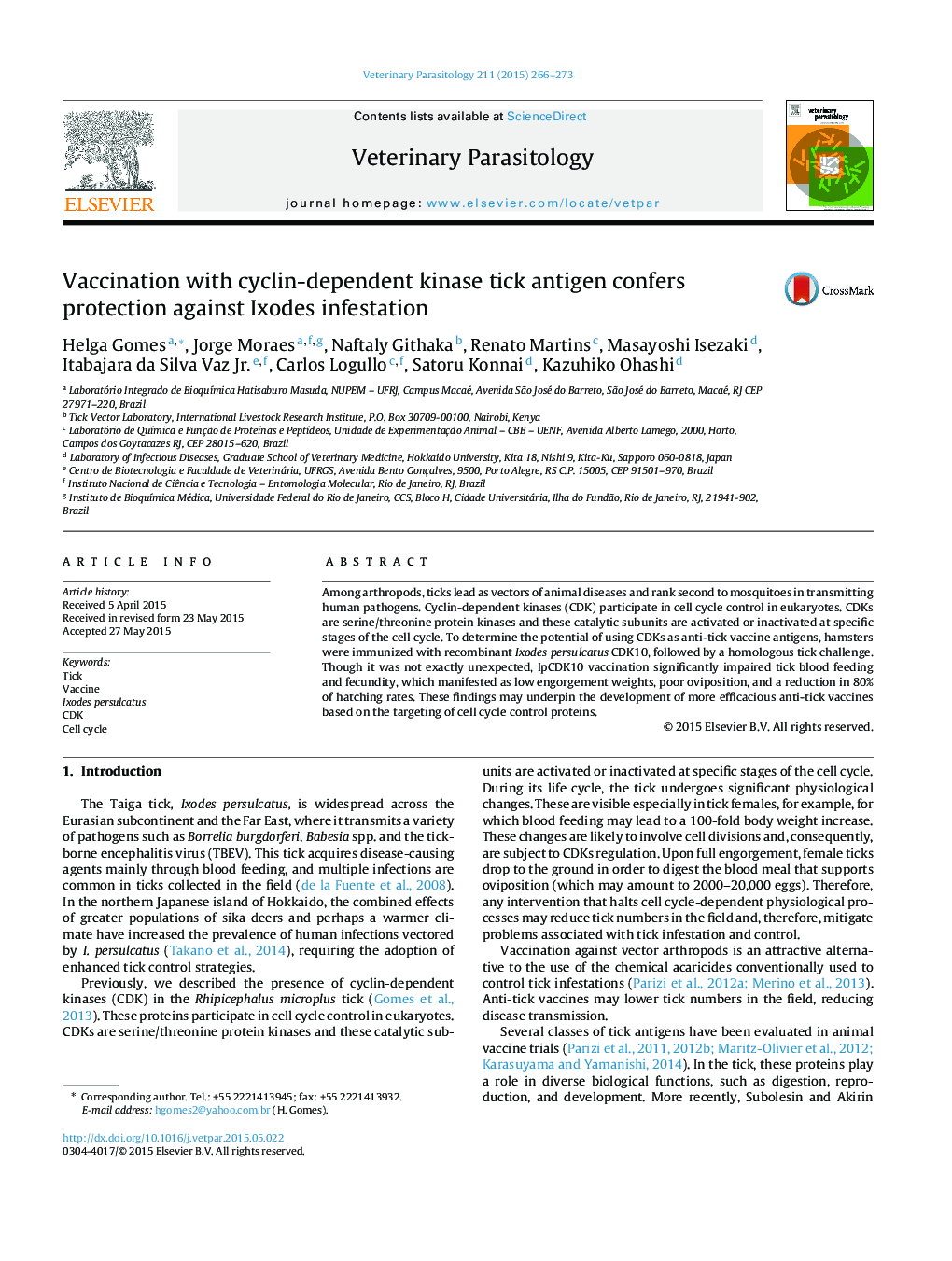| Article ID | Journal | Published Year | Pages | File Type |
|---|---|---|---|---|
| 5802426 | Veterinary Parasitology | 2015 | 8 Pages |
â¢qRTPCR showed differential CDK gene expression in Ixodes persulcatus tissues.â¢CDK10 vaccine efficacy was determined in a rodent model.â¢CDK10 conferred 80% protection against I. persulcatus infestation.
Among arthropods, ticks lead as vectors of animal diseases and rank second to mosquitoes in transmitting human pathogens. Cyclin-dependent kinases (CDK) participate in cell cycle control in eukaryotes. CDKs are serine/threonine protein kinases and these catalytic subunits are activated or inactivated at specific stages of the cell cycle. To determine the potential of using CDKs as anti-tick vaccine antigens, hamsters were immunized with recombinant Ixodes persulcatus CDK10, followed by a homologous tick challenge. Though it was not exactly unexpected, IpCDK10 vaccination significantly impaired tick blood feeding and fecundity, which manifested as low engorgement weights, poor oviposition, and a reduction in 80% of hatching rates. These findings may underpin the development of more efficacious anti-tick vaccines based on the targeting of cell cycle control proteins.
Graphical abstractDownload full-size image
